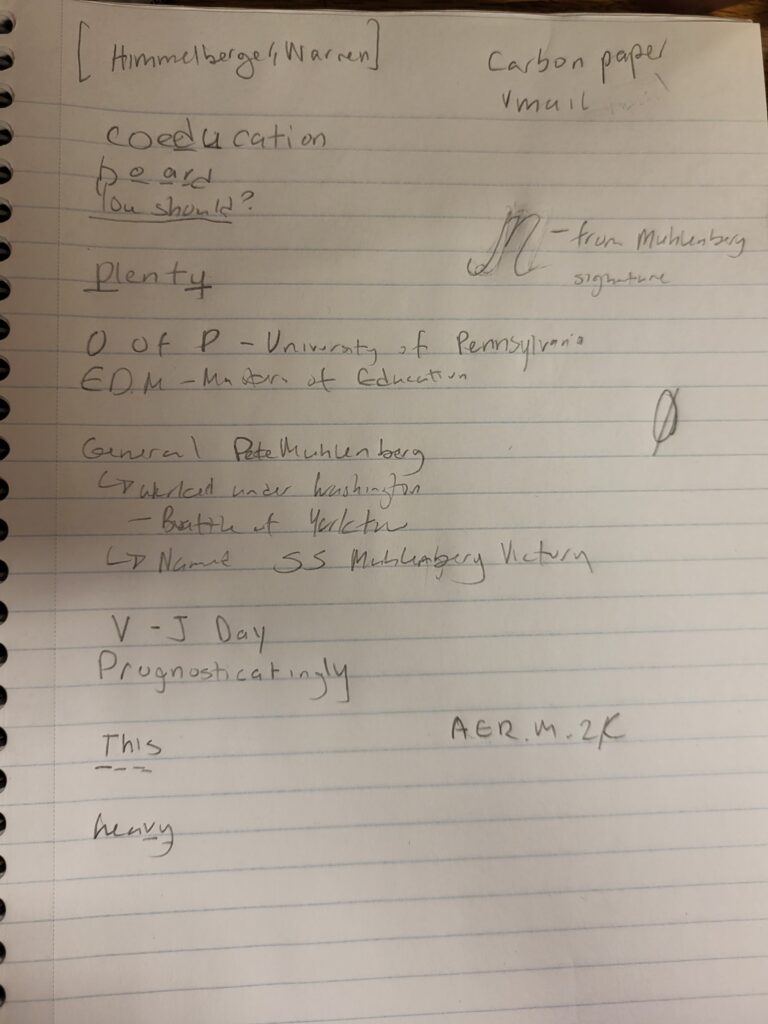To be quite honest, when we said “Letter Writing”, I didn’t think, “cursive whisperer” or “smudge reader”, or “detective” or “decipherer”. But alas, welcome to the story of how I (and Gabi!) became detectives!
In reality though, the most interesting part of the week was getting to read the World war 2 letters from past Muhlenberg students and alums. This was brought to our class by Ms. Suzan, who interestingly enough, I met during my census rounds in the library, checking in on the Rare Books Room which definitely should have been locked. Apparently, these graduates/students had sent letters back to the training base (which our campus apparently was), which gave pretty interesting views on multiple topics.
Earlier in the week we had read an article about WWII letters and how they were censored before being given to the recipient, but also:
“Letters were a great comfort. And the mail was indispensable. We couldn’t have won the war without it. It was terribly important as a motivator of the troops. Mail call whenever it happened it was a delight.”
– Paul Fussell (https://www.pbs.org/kenburns/the-war/communication-letters-diaries)
I find it interesting that despite the censorship, long wait times and other complications, letters still held such importance, enough to even be considered a factor in winning.
The letters Gabi and read were from Warren Himmelberger. There were letters on carbon paper, vmail, written by typewriter, in normal print and in cursive. The first one we read was type written but had a decent amount of smudge marks. While we could have just moved on, we decided to play a game of hangman and fill in the blanks. We also went deeper into certain topics, one of them talked about in nearly every letter we read was the “coeducation of Muhlenberg”. We later found out, that this was around the time Muhlenberg started the discussion on allowing girls into the college. (Himmelberger was indifferent but not against the idea by the way). We also dug into the “SS Muhlenberg Victory”, finding that the name wasn’t for the Muhlenberg the school was named after Pete Muhlenberg who served in the revolutionary war. Overall, this had to be my favorite class thus far.
